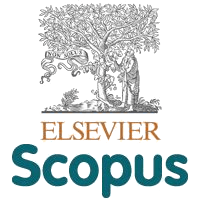The Influence of Sports Lifestyle on the Communicative Ability of Young Children's Peers: The Mediating Role of Self-esteem
Abstract
Objective: To explore the influence of children's sports lifestyle on the communication ability of peers and the mediating role of self-esteem. Methods: A survey was conducted on 422 children, which made reference to the Sports Lifestyle Scale, the Children’s Companion Ability Scale and the Children’s Self-Esteem Scale. AMOS 23.0 software was used to test the mediation effect. Results: Sports lifestyle is significantly positively correlated with peer communication ability (r = 0.364, P < 0.001), and it has a significant positive correlation with self-esteem (r = 0.171, P < 0.001). Furthermore, peer communication ability is positively correlated with self-esteem (r = 0.376, P < 0.01), while self-esteem plays a partially mediating role in the relationship between sports lifestyle and peer communication ability; the mediating effect value is 0.079, which is 29.82% of the total effect. Conclusion: On the one hand, sports lifestyle can directly improve children’s companion communication ability; on the other hand, it can indirectly improve children’s peer communication ability by improving their self-esteem.




